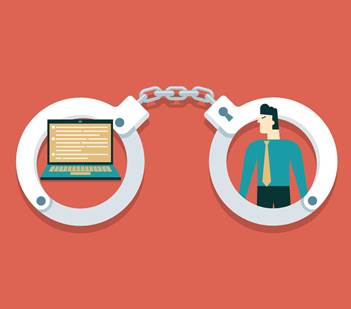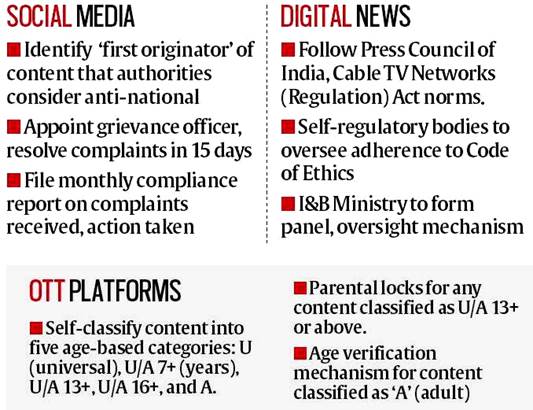Free Courses Sale ends Soon, Get It Now


Free Courses Sale ends Soon, Get It Now



Disclaimer: Copyright infringement not intended.
Context
Background
KEY FEATURES

Key Issues and Analysis
What was the need to amend the IT Rules, 2021?
The stated objectives of the amendments were three-fold.
Additional obligations placed on the SMIs through the recent amendment
|
Grievance Appellate Committees (GAC) Prior to the IT Rules, 2021, online platforms followed their own mechanisms and timelines for resolving user complaints. The IT Rules uniformed this by mandating that all social media platforms should have a grievance officer who would acknowledge the receipt of a complaint within 24 hours and dispose it within 15 days. However, the performance of the current grievance redressal mechanism has been sub-optimal. To remedy this, the government has instituted Grievance Appellate Committees (GAC). The committee is styled as a three-member council out of which one member will be a government officer (holding the post ex officio) while the other two members will be independent representatives. Users can file a complaint against the order of the grievance officer within 30 days. Importantly, the GAC is required to adopt an online dispute resolution mechanism which will make it more accessible to the users. |
Concerns
Final Thought
© 2024 iasgyan. All right reserved